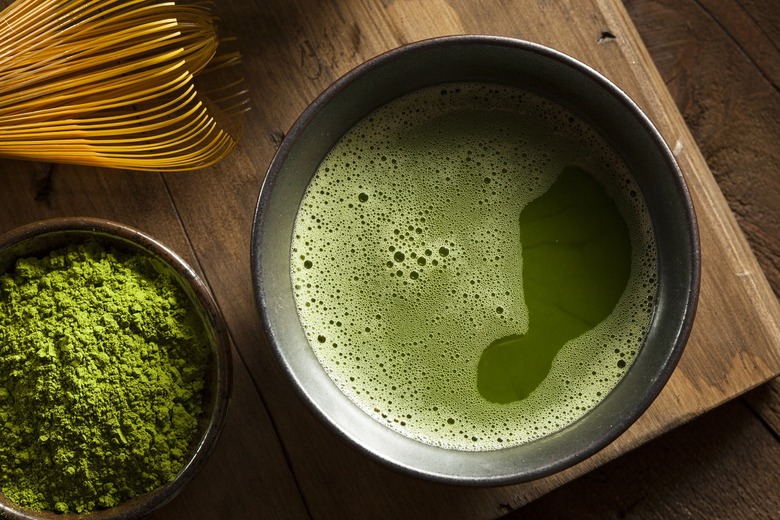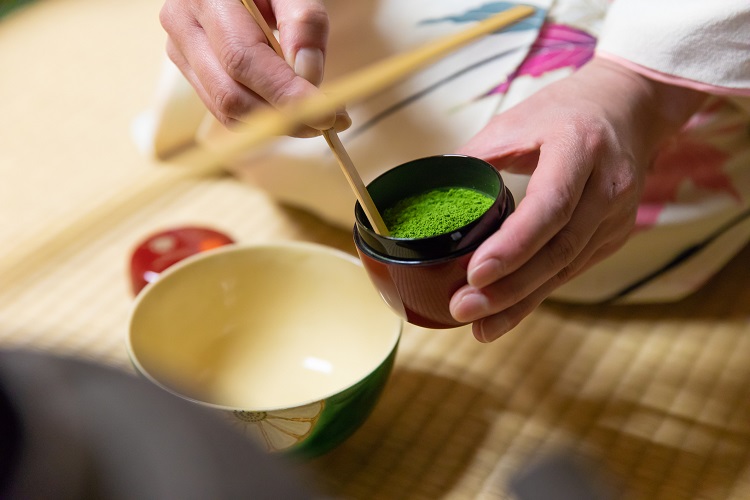This Tea Has Just As Much Caffeine As Coffee
We may receive a commission on purchases made from links.
When we need a boost of energy, many of us turn to caffeine — a central nervous system stimulant proven to wake you, alleviate fatigue and improve concentration. Our primary source of intake is coffee — Americans drink more today than ever — but if you're burnt out on the usual blonde vanilla latte non-fat no whip, what's next?
20 Foods and Drinks You Didn't Know Had Caffeine
The majority of energy drinks contain loads of sugar, questionable ingredients (taurine, guarana, ginseng) and an insane amount of caffeine, all of which may contribute to weight gain, nervousness, irritability, insomnia, rapid heartbeat and increased blood pressure, according to the Mayo Clinic. Some scientists even discovered that drinking energy drinks could cause heart, kidney and dental problems on top of risk-seeking behavior and poor mental health. And although they have a lot of caffeine, sadly the energy-boost is short lived.
Tea, on the other hand, is a much healthier choice that has enough caffeine to kick you into gear. Not all teas have large sums of caffeine, and some don't have any caffeine at all. So which kind do we choose in order to get that extra energy? All tea comes from the same plant (Camellia sinensis), but your best bet for catching a buzz is matcha, a steamed, stemmed, de-veined green tea in powder form. It's long been a staple in Japanese culture, but popularity in the U.S. has grown immensely in recent years.
According to Caffeine Informer, prepared matcha averages 70 milligrams of caffeine per 8 ounces. In comparison, brewed coffee contains about 95 (subject to variance depending on roast and preparation, of course). We know these amounts don't truly equal, but if you drink just 3 more ounces of matcha, you're good! Plus your next best bet is black tea, and that only has an estimated 42 milligrams per 8 ounces. And the caffeine in matcha is different than that of coffee; it's released into the bloodstream much more slowly, which sustains energy for up to eight hours.
If all tea comes from the same plant, why does matcha contain the most caffeine? Because it's grown in a shaded environment three weeks prior to the harvest. Due to the lack of sunlight, the plant is able to produce more caffeine and L-theanine, an amino acid that reportedly increases your mood, provides mental clarity, reduces stress, boosts your immune system, increases performance and allows you to relax without making you feel drowsy — similar results to caffeine but without the inevitable crash. Because the amino acids are preserved, matcha is naturally sweeter than other teas, too. And! It contains an antioxidant called epigallocatetchin gallate, which is known for reducing the risk of cancer.
You can get matcha pretty much anywhere nowadays, including but not limited to chains like Starbucks, Pret A Manger, Peet's Coffee, Le Pain Quotidien, Whole Foods, Bluestone Lane, Gregory's Coffee and Cha Cha Matcha. Want to make it on your own? No problem.
For the high-end stuff, Gwenyth Paltrow's company Goop sells a starter set for $128 that includes a bamboo whisk, bamboo scoop, homemade ceramic tea bowl and 1.1 ounces of Morihata Sei ceremonial-grade powdered matcha tea imported from Uji, Japan. If you can't afford the fancy-shmancy stuff, our budget picks include Jade Leaf's USDA-approved organic Japanese matcha (a best-seller on Amazon) and Pure Matcha's ceremonial grade tin, which has been described as "smooth and rich and ever-so-slightly (naturally) sweet."
If you want to shop on your own accord, here's how to determine whether or not a matcha is of good quality: Was it made in Japan? Is it bright green? Does it come in a tin? Does the package have an expiration date to ensure freshness? Is it ceremonial grade? (This just means it's appropriate for the traditional koicha preparation, or "thick tea.") If the answer is yes to all, you're good to go. If you want to mix your matcha with milk, or as part of a smoothie, lemonade, etc., it's OK to buy "culinary" matcha. And if you don't already have one, one of the highest-rated tea kettles is Cuisinart's PerfecTemp, an electric, cordless, stainless-steel pot you can use without firing up the stovetop.
Preparation is a little different than your average tea-making experience. Instead of steeping a bag of leaves, you must sift 1 to 2 teaspoons of matcha powder into a cup. This helps get rid of clumps. Add 2 ounces of very hot water (just under a boil), then whisk it (with a bamboo whisk) until it gets frothy. Once everything is mixed, add more water (or liquid of choice) and enjoy. If it isn't caffeine you're looking for, but you're interested in trying other teas, here's a look at the soothing benefits of seven different kinds.


